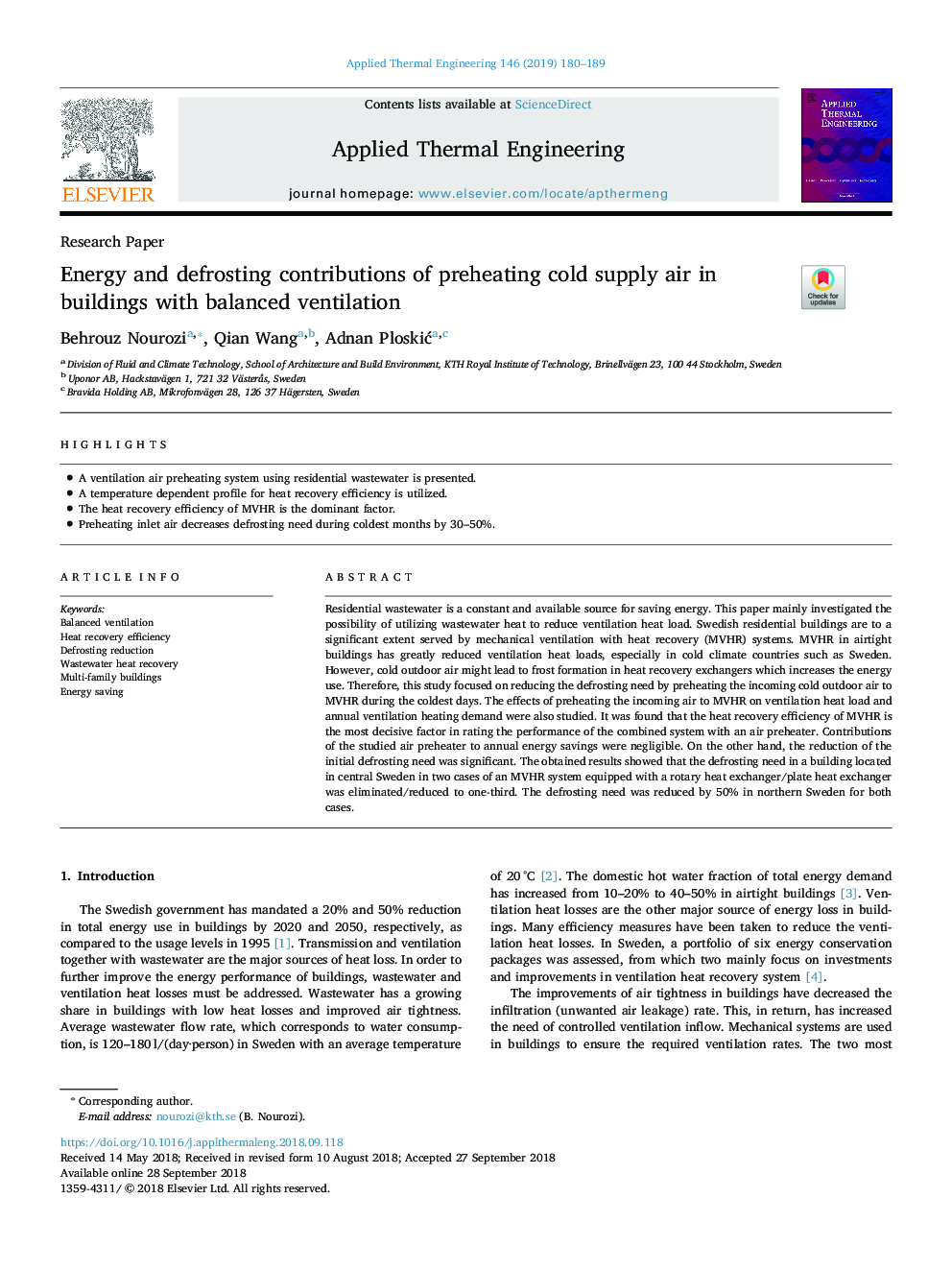| Article ID | Journal | Published Year | Pages | File Type |
|---|---|---|---|---|
| 11020812 | Applied Thermal Engineering | 2019 | 10 Pages |
Abstract
Residential wastewater is a constant and available source for saving energy. This paper mainly investigated the possibility of utilizing wastewater heat to reduce ventilation heat load. Swedish residential buildings are to a significant extent served by mechanical ventilation with heat recovery (MVHR) systems. MVHR in airtight buildings has greatly reduced ventilation heat loads, especially in cold climate countries such as Sweden. However, cold outdoor air might lead to frost formation in heat recovery exchangers which increases the energy use. Therefore, this study focused on reducing the defrosting need by preheating the incoming cold outdoor air to MVHR during the coldest days. The effects of preheating the incoming air to MVHR on ventilation heat load and annual ventilation heating demand were also studied. It was found that the heat recovery efficiency of MVHR is the most decisive factor in rating the performance of the combined system with an air preheater. Contributions of the studied air preheater to annual energy savings were negligible. On the other hand, the reduction of the initial defrosting need was significant. The obtained results showed that the defrosting need in a building located in central Sweden in two cases of an MVHR system equipped with a rotary heat exchanger/plate heat exchanger was eliminated/reduced to one-third. The defrosting need was reduced by 50% in northern Sweden for both cases.
Related Topics
Physical Sciences and Engineering
Chemical Engineering
Fluid Flow and Transfer Processes
Authors
Behrouz Nourozi, Qian Wang, Adnan PloskiÄ,
